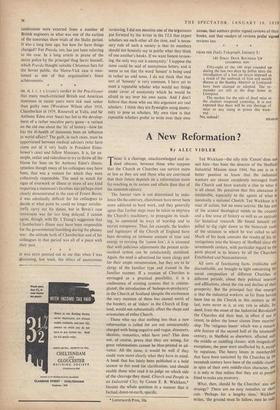DR. H. r. c. J. L'ETANa's verdict in the Practitioner
that many much-criticised British and American statesmen in recent years were sick men rather than guilty men (Woodrow Wilson after 1918, Chamberlain in 1939, Roosevelt at Yalta, and Sir Anthony Eden over Suez) has led to the develop- ment of a rather macabre party game—a variant on the old one about the 'ifs' of history—hOw far has the ill-health of Statesmen been an influence in world affairs? The guilt, in such Cases, must be apportioned between medical advisers (who have come out of it very badly in President Eisen- hower's case) and fellow Ministers. It is, for ex- ample, unfair and ridiculous to try to throw all the blame for Suez on Sir Anthony Eden's illness; spineless though many of his colleagues may have been, that was a venture for which they were collectively responsible. The need to watch for signs of overwork or illness or stress of any kind impairing a statesman's faculties was p6ihaps most clearly demonstrated in the case of Ernest Bevin; it was admittedly difficult for his colleagues to decide at what point he could no longer satisfac- torily carry out his duties, but in Bevin's case retirement was far too long delayed. I cannot agree, though, with Dr. L'Etang's suggestion that Chamberlain's illness may have been responsible for the governmental bumbling during the phoney war : the attitude both of Chamberlain and of his colleagues in that period was all of a piece with their past.


































 Previous page
Previous page